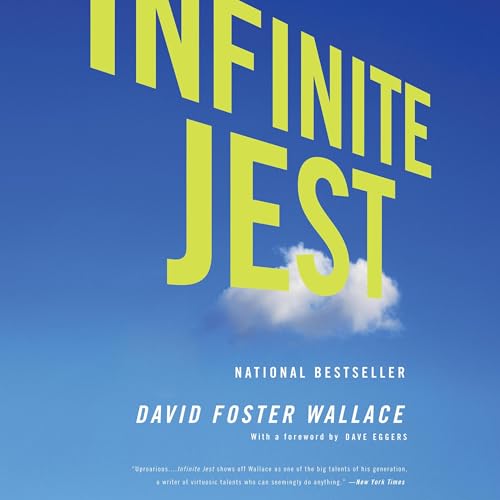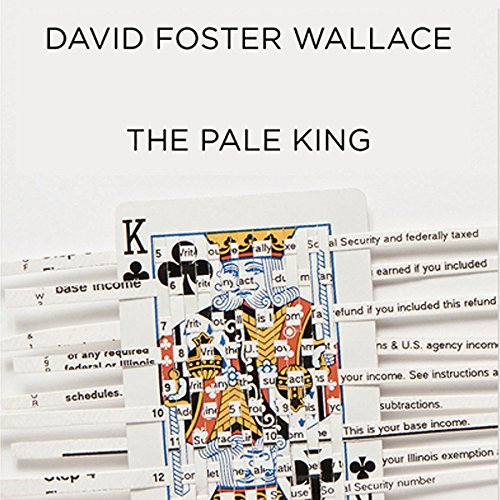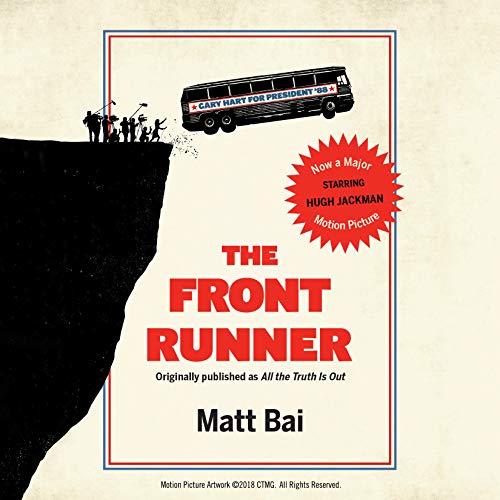
 Audible sample
Audible sample  Playing...
Playing... 
 Paused
Paused  Your audiobook is waiting!
Your audiobook is waiting!
Enjoy a free trial on us
$0.00$0.00
- Click above for unlimited listening to select audiobooks, Audible Originals, and podcasts.
- One credit a month to pick any title from our entire premium selection — yours to keep (you'll use your first credit now).
- You will get an email reminder before your trial ends.
- $14.95$14.95 a month after 30 days. Cancel online anytime.
Buy
-13% $24.01$24.01
Consider the Lobster: And Other Essays
 Audible Audiobook
– Unabridged
Audible Audiobook
– Unabridged
Do lobsters feel pain? Did Franz Kafka have a funny bone? What is John Updike's deal, anyway? And what happens when adult video starlets meet their fans in person? David Foster Wallace answers these questions and more in essays that are also enthralling narrative adventures. Whether covering the three-ring circus of a vicious presidential race, plunging into the wars between dictionary writers, or confronting the World's Largest Lobster Cooker at the annual Maine Lobster Festival, Wallace projects a quality of thought that is uniquely his and a voice as powerful and distinct as any in American letters.
- Listening Length15 hours and 8 minutes
- Audible release dateSeptember 20, 2017
- LanguageEnglish
- ASINB075RFPW8Y
- VersionUnabridged
- Program TypeAudiobook
People who viewed this also viewed
- Audible Audiobook
- Audible Audiobook
- Audible Audiobook
- Audible Audiobook
- Audible Audiobook
People who bought this also bought
- Audible Audiobook
- Audible Audiobook
- Audible Audiobook
- Audible Audiobook
- Audible Audiobook
Related to this topic
- Audible Audiobook
- Audible Audiobook
- Audible Audiobook
- Audible Audiobook
- Audible Audiobook
Product details
| Listening Length | 15 hours and 8 minutes |
|---|---|
| Author | David Foster Wallace |
| Narrator | David Foster Wallace, Robert Petkoff |
| Audible.com Release Date | September 20, 2017 |
| Publisher | Hachette Audio |
| Program Type | Audiobook |
| Version | Unabridged |
| Language | English |
| ASIN | B075RFPW8Y |
| Best Sellers Rank | #15,654 in Audible Books & Originals (See Top 100 in Audible Books & Originals) #18 in Literary Essays #18 in Literary History & Criticism #21 in General Books & Reading |
Customer reviews
Customer Reviews, including Product Star Ratings help customers to learn more about the product and decide whether it is the right product for them.
To calculate the overall star rating and percentage breakdown by star, we don’t use a simple average. Instead, our system considers things like how recent a review is and if the reviewer bought the item on Amazon. It also analyzed reviews to verify trustworthiness.
Learn more how customers reviews work on AmazonReviews with images
-
Top reviews
Top reviews from the United States
There was a problem filtering reviews right now. Please try again later.
Slightly more specifically. The non-fiction essays were written (except for one in 1994) from 1998 through 2005. The subjects are: Words, language, literature, teaching, writing, thinking, lying, entertainment, sports, celebrity, politics, food, small towns, Las Vegas, pornography, morality, talk radio; and of course the people and personalities that make up those places, industries, and things ... in other words: What it is to be human in America at the turn of this millennium. Do I always agree with him? No. For example, in "Up, Simba," about John McCain and the GOP primary of 2000 he writes about the decision to vote or not (something I have written about myself) and I agree with him--not voting is actually a vote for the status quo. And this, in the same essay, hits home:
" ... getting lied to sucks - that it diminishes you, denies you respect for yourself, for the liar, for the world. Especially if the lies are chronic, systemic, if experience seems to teach that everything you're supposed to believe in's really just a game based on lies." (pg. 189)
Yes, David; but just what game are you talking about? ( I was living just a few miles away from him when he killed himself. And before his death I had never heard of him. I feel - like I lost something, something that I'll never have the opportunity to experience ever again.) [If you're into the ins-n-outs of lying, check out my blog @ markjabbour.com (coming in mid July 2011). Lying is one of my favorite subjects.] So how does Wallace reconcile that with this: The senior ladies, his neighbors in Bloomington, Indiana, on September 11, 2001 were innocent. He says. Not stupid but innocent. I get his point, but I disagree. No adult in America is innocent. Children are innocent; but in a democracy that stands for freedom and equal rights, every citizen, especially the older you get and the more you benefit from that freedom - is not innocent but responsible. Ahhh, but these are the contradictions that drove Wallace, ultimately I think, to take his own life. He asked questions, the right questions, he studied the problems and asked more questions. And more than any other, he could put it all down on paper so as not to offended or rankle or make defensive - but to make people think. Which is, arguably (which he does) a good thing, right?
But the Kindle Edition (at least) has a serious flaw. One of the essays hinges on misspellings of words, but when Amazon created the Kindle version, someone **ran the whole thing through autocorrect!!!**. Which obviously destroys the author's intentionally misspelled content. The reader can reconstruct what DFW intended in some cases, but others are totally lost.
Perhaps it was an unintended artifact of some optical-character-recognition process, but either way I'd expect a little more care in the process -- when Amazon is advertising the Kindle Edition as the same as the book, there needs to be a human who looks at cases where a word's spelling is being changed (or where OCR has low confidence).
The essay "Up, Simba" chronicles John McCain's 'Straight talk Express' from the 2000 primary campaign. "Big Red Son" is gonzo reporting on the AVN awards (the 'Oscars of porn') at Las Vegas in the late 1990's. He reviews John Updike's last book as an exemplar of the end of the GMN's (Great Male Narcissists), who are a literary contrast to DFW's multi-centered fiction writing. He reviews (and trashes) the trendy ghostwritten sports biography in "How Tracey Austin Broke My Heart." In "Host" DFW profiles a conservative radio talk show host's manipulation of listeners' emotions. DFW also celebrates the new translation of Kafka's The Castle and the new biography of Dostoevsky - two of DFW's favorite writers.
Check out these wide-ranging essays by a great American thinker. Also look into the essays in his earlier collection A Supposedly Fun Thing I'll Never Do Again. Cheers!
Top reviews from other countries
Ensaios maravilhosos sobre os mais variados assuntos: a aparente vacuidade das biografias de atletas, a ética de comer animais, a política e ética nas normas de linguagem, a loucura de uma eleição, o surrealismo do pornô, o ethos de programas políticos de rádio, entre outras coisas.
Vale a pena comprar a edição física, pois o último ensaio “Host” é diagramado de uma maneira que não se transpõem no kindle e, por isso, não está presente ali.
P.s- prepare for footnotes of footnotes, which are arguably more entertaining the main passages themselves.
"Consider the Lobster" is one of ten essays in this book, whose subjects range from the sublime (a thoughtful review of Professor Joseph Frank's biographical works on Dostoevsky) to the faintly ridiculous (the titular essay referring to a lobster food festival). What I really love about every single one of these essays is that Wallace's tone and voice is so clear in every one, even though the subjects and styles of essays are so different. While some of the subject matter is pretty risqué (the first essay is an account of a visit to a major porn industry convention), Wallace writes with such humanity and desire to see the heart behind what often seems heartless (another essay deals with politics, with Wallace joining the McCain2000 campaign for a week).
Stylistically and artistically as well, these essays are a joy to read: "Authority and American Usage" is an essay reviewing Bryan A Garner's 'A Dictionary of Modern American Usage', and is hilarious in its intelligence and (not particularly) gentle mocking of the very concept of a book describing the American use of language. Not that he doesn't see the need or interest in such a volume, but rather Wallace makes a point of using as much language as physically possible.
Any good artist makes you want to be a better artist yourself, and this collection of writing both shows how writing can be great and entertaining no matter what the subject, and makes me want to be a much better writer and thinker. Wallace wrote thoughtfully and (I think) with fairness and clarity, and ten years after his tragic death, it's a real shame that he is not here to try and dissect the world as it looks now. I enjoyed these essays very much and am looking forward to getting a hold of more of Wallace's writing as soon as I can.
En cuanto al autor, es una referencia entre los escritores de este siglo.






















